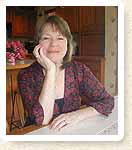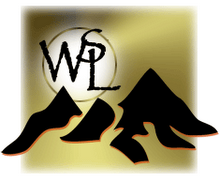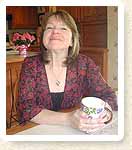



Personal blog of christian
writer & fallible mom
Katy McKenna Raymond
in Kansas City, Missouri

Katy is represented by
Greg Johnson at
WordServe Literary

Read more Katy at
LateBoomer.net




So I’ve Finally Signed With An Agent. Now What? (#1667)
 When I signed on the undotted line to become a client of WordServe Literary, dozens of people began asking me the very questions that were reverberating through my own mind, and contributing their commentary to my interior monologue. As it turned out, thinking through these questions and comments helped me understand some of what might—or might not—happen next.
When I signed on the undotted line to become a client of WordServe Literary, dozens of people began asking me the very questions that were reverberating through my own mind, and contributing their commentary to my interior monologue. As it turned out, thinking through these questions and comments helped me understand some of what might—or might not—happen next.
“I really don’t know what it means to have an agent.” The friend who made this statement happened to be a real estate agent. She loved getting new listings, knowing that other agents would be showing the house at least as much as she would, possible making the sale for her and splitting the commission. I told her that unlike a real estate agent, a writer only has one literary agent working for her at a time. And it’s through the efforts of that agent that the book proposal is submitted to publishers, the bidding war for your book heats up (hey, a girl can dream!), the contract is negotiated, and the movie rights are sold (again with the dreams!).
“How did you find your agent?” In my experience, there are two great ways to find your agent, and the two are somewhat related. One is to attend local, regional, and national writers conferences. While there, you will have a chance to sign up for brief meetings with agents and editors to pitch your work. You’ll also get to meet these industry professionals at meals and during their teaching presentations. Often, after hearing about your project, agents will invite you to submit your proposal and some sample chapters. Do your best to follow through on those invitations! There are plenty of online references to coach you through the writing of a proposal. Get it in tip-top shape (ask a few writer buddies to look it over for you) and send it, with a reference to your previous meeting and the agent’s invitation. But even at large conferences, your opportunity to meet many agents all on your own isn’t too great. That’s where networking with scores of published authors comes in. Build relationships online and at conferences, and it might just happen that one day a favorite writer friend might introduce you to an agent, giving you the gift of a sought-after recommendation and earning you the agent’s attention. That is how I found my agent.
“Why would you want to pay an agent when you can just deal with the publishers yourself and keep the money?” While it’s not impossible, it is not easy to connect with an acquisitions editor at a publishing house and succeed in getting a contract without an agent. At the stage of contract negotiations, I personally would not want to be going it alone. If I did not have an agent and managed to sell my manuscript, I would definitely hire an intellectual property attorney to help me with the legal side of things. In my opinion, a good agent offers so much more than just contract negotiation. A great agent acts a trusted friend, career coach, and mentor. Some like to get involved in shaping your proposal and even some editing of your work, but I would not expect that level of involvement from my agent.
“Why wouldn’t you just self-publish and keep all the money?” More and more, of course, this is becoming a viable alternative to traditional publishing, and it’s an option that has made quite a number of authors wildly successful. I personally appreciate the commitment of resources (marketing, editing, cover design, sales, and production professionals) that traditional publishers bring to the table, as well as the value of an agent’s contribution. I do have a few book ideas that would probably be better self-pubbed than traditionally pubbed, for reasons relating to small niche markets and need to be frequently updated. But for most of my projects, I’d prefer to stick with traditional publishing.
“Was your book all the way finished before you got an agent?” My novel was completely written, along with a proposal, before my author friend volunteered to forward it to my agent. For a first-time novelist, this is generally required. With a non-fiction book, the agent typically wants to see a proposal and the first three chapters, along with an outline for the remainder of the book.
“Does your agent whip your book proposal into shape for you? How about your manuscript? Does the agent edit it before sending it to publishing companies?” Some agents come from a background as an editor and enjoy working with a rougher proposal and chapters. But most are pressed for time and trying to serve the needs of many clients. Even though they might love to help you craft your work to perfection, they simply can’t. They might, however, recommend that you seek the services of an outside freelance editor to give your work the boost it needs. If you are advised to seek an editor’s assistance, by all means, do so. Ask around among your writer friends for the names of editors they trust. Money spent to make your manuscript the best it can be while you’re learning how to work well with an editor is an investment that will return to you in book sales down the road.
“Now that you’ve got an agent, when is your book coming out?” Unfortunately, signing with an agent is no guarantee that your book will sell. But it does remarkably improve your chances. Agents study the markets for a living and know what the various publishers are looking for at any given time. My understanding is that agents sell approximately 50% of the books they attempt to place. For me, that math is fantastic, especially when I’ve read that the chances of an author selling a book to a traditional publisher without an agent are about 1%. So, when will my book come out? I have no idea, but I believe the chances it will be published at all are higher now than before I had an agent.
What happens after you sign with an agent? Plenty! Not the least of which is that you get asked a lot of questions and soon enough, you learn a few of the answers.
You may need to keep track of all those questions and correspond with your questioners. A randomly (after this post has been up for 2 days) chosen commenter will win a Mary Engelbreit journal and a set of Mary Engelbreit notecards. Good luck and Happy Answering!


Permalink
Page 1 of 1 pages
